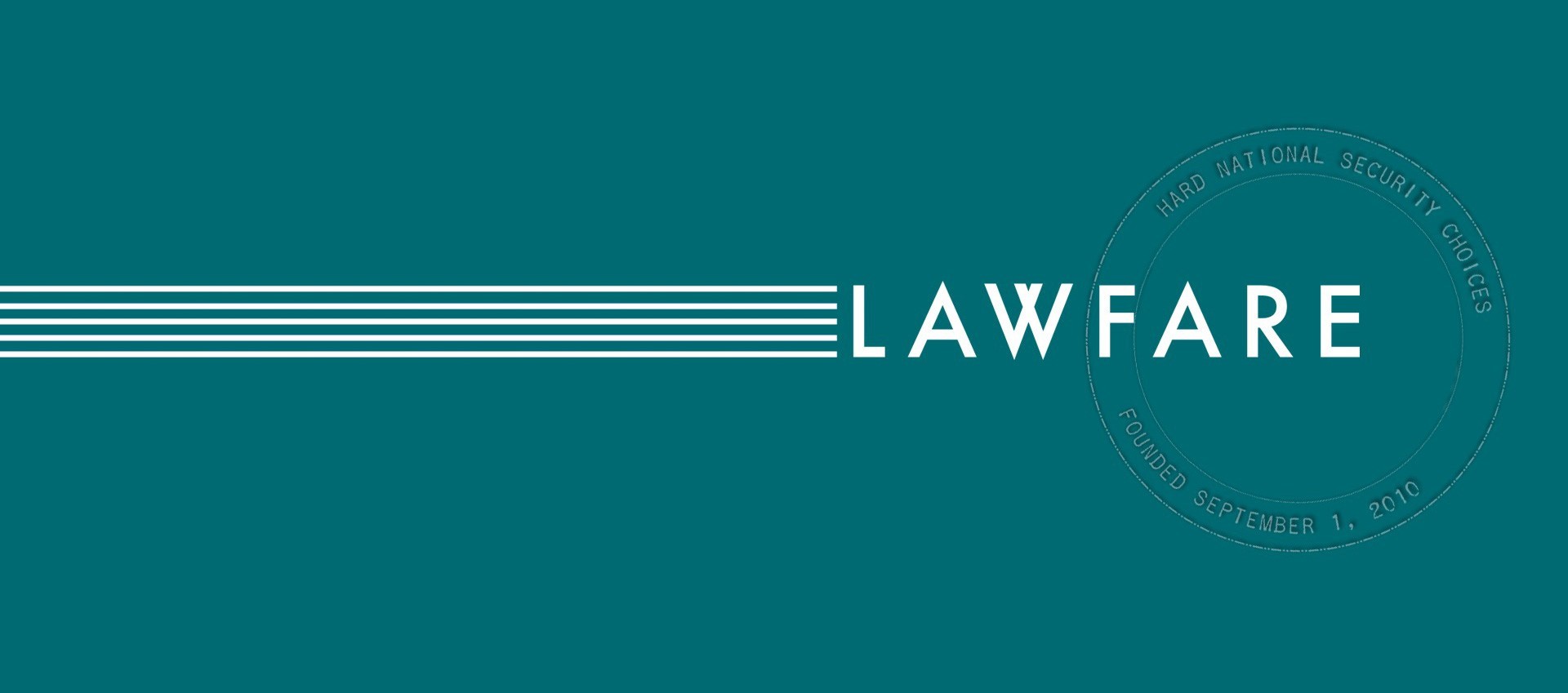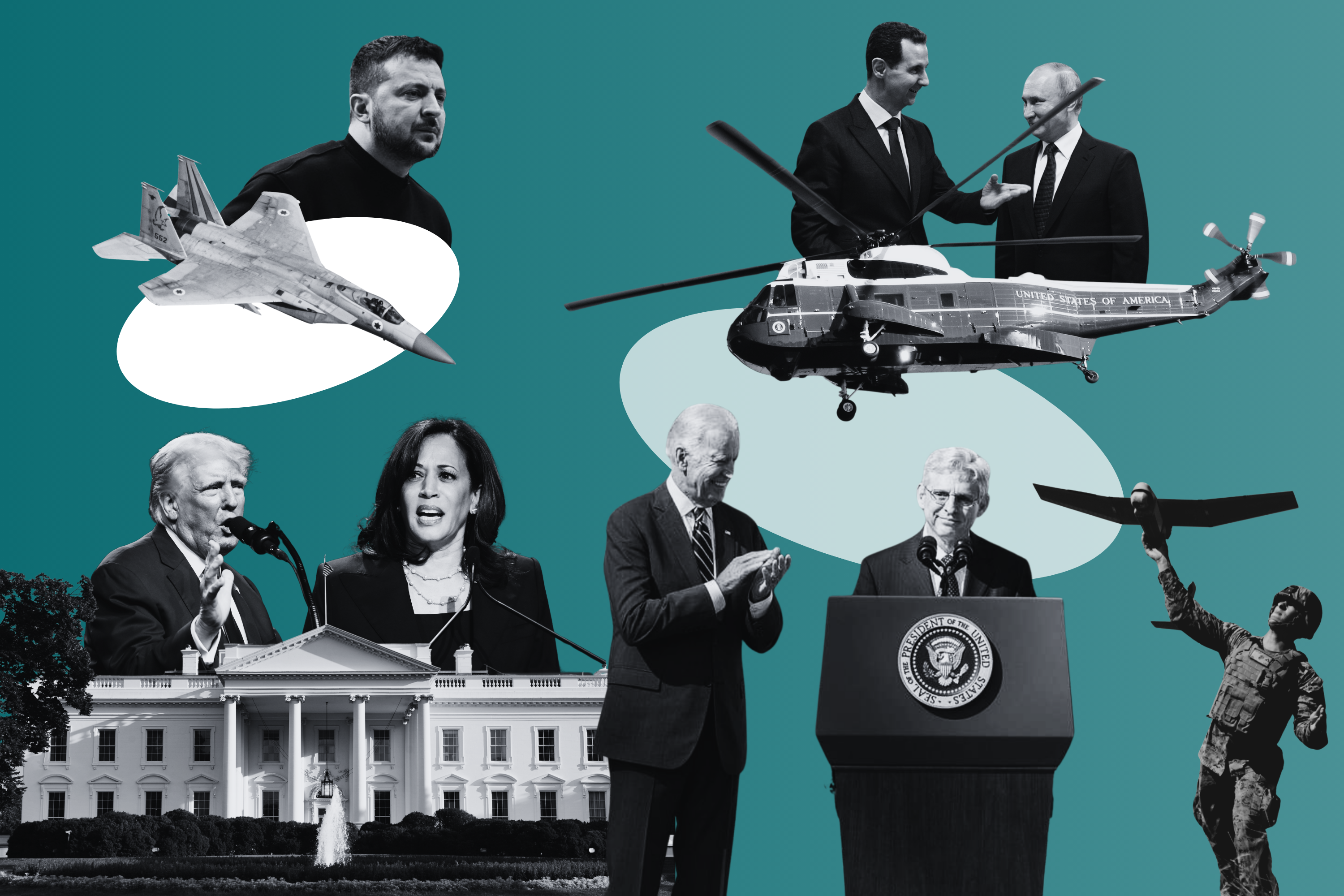The Week That Was: All of Lawfare in One Post
Rishabh Bhandari published FBI Director James Comey’s public statement after Comey had announced that the Bureau would not recommend charges be filed against Hillary Clinton for her use of a private email server while she served as secretary of state. He also posted the video of Comey’s testimony in front of the House Committee on Oversight and Governance Reform.
Published by The Lawfare Institute
in Cooperation With

Rishabh Bhandari published FBI Director James Comey’s public statement after Comey had announced that the Bureau would not recommend charges be filed against Hillary Clinton for her use of a private email server while she served as secretary of state. He also posted the video of Comey’s testimony in front of the House Committee on Oversight and Governance Reform. Benjamin Wittes presented his off-the-cuff analysis of Comey’s public statement. Susan Hennessey dissected Comey’s statement to reveal the Bureau’s stinging criticism of the State Department’s lax culture around information security. Jack Goldsmith flagged a piece he wrote for Time Magazine speculating about why Comey publicly summarized the Bureau’s investigative findings and his recommendation to Attorney General Loretta Lynch.
Ben quipped that if the New York Times editorial page is beginning to cite Lawfare as an authoritative source, they should begin with his take on a recent Guantanamo Bay editorial by the Grey Lady. He also warned about the precedential impact of Comey's decision to be so transparent about his investigation.
And the Rational Security gang discussed the Clinton email investigation in this week's episode:
Meanwhile, Cody Poplin posted the statements and congressional testimony of Lee Wolosky and Paul Lewis, two special envoys from the State Department and Pentagon who are overseeing the process of releasing Guantanamo detainees to other countries.
Rishabh Bhandari linked the Iraq inquiry’s searing analysis of Britain’s decision to join the Iraq War and how the government handled Iraq’s reconstruction.
Julian Ku encouraged the Philippines to provoke China into disputing the forthcoming verdict over the two countries’ disputes in the South China Sea.
Kenneth Anderson studied the text of Russia and China’s joint statement on the “promotion of international law.” He also pointed out a new article from Eric Talbot Jensen that examines the extent to which a president can determine the domestic effect of customary international law.
Robert Loeb and Helen Klein Murillo continued their coverage of the ongoing Nashiri case.
Sloane Speakman dismissed calls that the Syria should be partitioned after the civil war’s cessation.
Timothy Edgar proffered three steps for NSA reform.
Susan Hennessey considered both possible reforms to the Vulnerabilities Equities Process and also the best mechanisms by which such reform can be achieved.
Paul Rosenzweig ran through a few new developments in the world of cyberspace.
Frederica Saini Fasanotti proferred "A Confederal Model for Libya."
Benjamin interviewed John Carlin, the assistant attorney general for national security, about an article he wrote for the Harvard National Security Journal on the latest episode of The Lawfare Podcast.
Stewart Baker published the latest episode of the Steptoe Cyberlaw podcast, wherein the crew discusses everything from Edward Snowden’s relationship with the Russian intelligence community to China’s new Internet regulations.
And that was the week that was.





